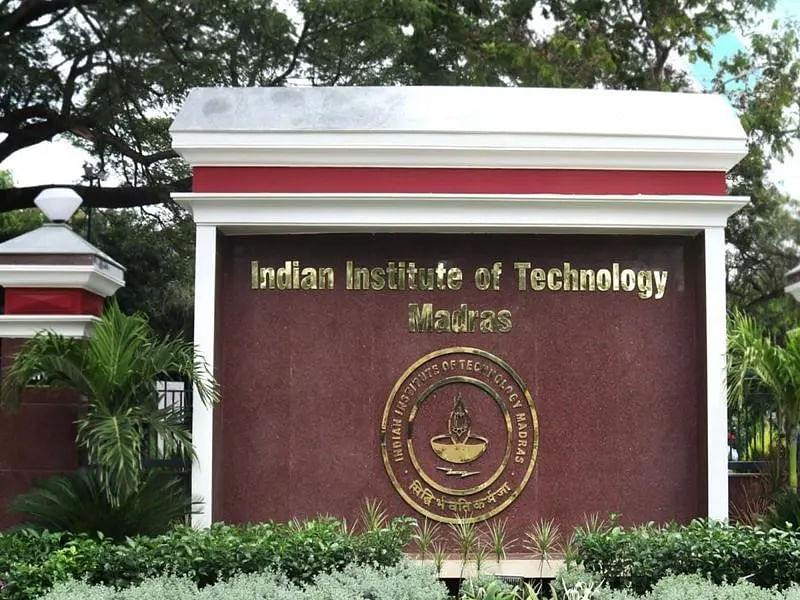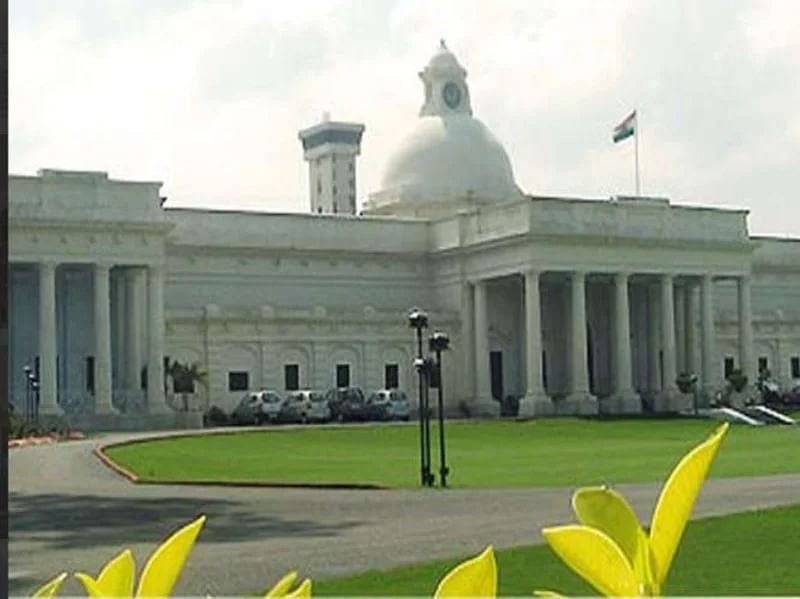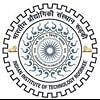M.Sc Chemistry Syllabus and Subjects

The MSc Chemistry syllabus covers a wide range of topics including inorganic chemistry, analytical chemistry, chains, and physical chemistry. The course is taught over a period of two years, divided into four semesters, with a focus on practical training to prepare students for their professional careers. Graduates of the program can pursue various job opportunities in industries such as pharmaceuticals, agriculture, iron and steel, and many others.
Table of Contents
Semester Wise MSc Chemistry Syllabus
The MSc Chemistry syllabus covers physical, organic, and inorganic chemistry. It exposes students to a range of concepts in the field of chemistry to develop both theoretical and practical skills. The program includes core, practical, and elective subjects, and the M.Sc Chemistry syllabus is organized by semester. See below for the detailed syllabus.
M.Sc Chemistry First Year Syllabus
In the table given below is the M.Sc 1st sem and M.Sc 2nd sem syllabus Chemistry:
| Semester I | Semester II |
| Inorganic Chemistry | Inorganic Chemistry II |
| Physical Chemistry | Physical Chemistry II |
| Organic Chemistry | Organic Chemistry II |
| Spectroscopy | Techniques of Chemistry II |
MSc Chemistry 1st year Practicals
In the list given below are pacticals in 1st year offered in MSc Chemistry:
- Inorganic Chemistry
- Physical Chemistry
- Organic Chemistry
- Techniques of Chemistry
M.Sc Chemistry Second Year Syllabus
In the table given below is the 2nd year syllabus for MSc Chemistry syllabus:
| Semester III | Semester IV |
| Molecular Rearrangements & Photochemistry | Organometallic Chemistry |
| Nomenclature | Nomenclature |
| Inorganic Special-I/Physical SplI/Organic Spl.-I | Inorganic Special-IV/Physical SplIV/Organic Spl-IV |
| Inorganic Special-II/Physical SplII/Organic Spl.-II | Inorganic Special-V/Physical SplV/Organic Spl-V |
| Inorganic Special-III/Physical SplIII/Organic Spl-III | Inorganic Special-VI/Physical SplVI/Organic Spl-VI |
MSc Chemistry 2nd year Practicals
In the list given below are pacticals in 2nd year offered in MSc Chemistry:
- Inorganic Chemistry
- Physical Chemistry
- Organic Chemistry
MSc Chemistry Subjects
The MSc Chemistry subjects offers students a comprehensive understanding of various topics within the field of chemistry. The subject list is divided into core, elective and lab subjects. Below is the list of subjects included in the Chemistry M.Sc syllabus.
M.Sc Chemistry Core Subjects
Given below are the M.Sc Chemistry subjects offered as Core subjects:
- Inorganic Chemistry
- Physical Chemistry
- Organic Chemistry
- General Spectroscopy
- Spectroscopy
- Molecular Rearrangments & Photochemistry
- Organometallic Chemistry
- Some Specific Reactions and Regeants in Chemistry
M.Sc Chemistry Elective Subjects
Given below are the elective in the M.Sc Chemistry subjects:
- Polymer Chemistry
- Electrochemistry
- Heterocyclic Chemistry
- Chemistry of Natural Products
- Medicinal Chemistry
M.Sc Chemistry Lab Subjects
Given below are the lab works offered in the MSc Chemistry subjects:
- Inorganic Chemistry
- Physical Chemistry
- Organic Chemistry
M.Sc Chemistry Subjects In Detail
Below is a table containing a list of MSc Chemistry Subjects and their corresponding topics taught within each subject.
| M.Sc Chemistry Subjects | Topics |
| Inorganic Chemistry | Stereochemistry and Bonding in Main Group compounds, Metal-Ligand Equilibria in solution, Reaction Mechanism of Transition Metal Complexes. |
| Physical Chemistry | Quantum Mechanics, Thermodynamics, Chemical Dynamics, Electrochemistry. |
| Organic Chemistry | Nature of Bonding in Organic molecules, Stereochemistry, Reaction Mechanism: Structure and Reactivity, Purification Techniques. |
M.Sc Chemistry Course Structure
The M.Sc Chemistry syllabus offers many specialized options to students. It aims to provide a comprehensive understanding of the course principles in a practical way. The course structure for the MSc syllabus chemistry is mentioned below:
- IV Semesters
- Core Subjects
- Elective Subjects
- Research Project Submissions
- Practical Subjects
M.Sc Chemistry Teaching Methodology And Techniques
The MSc Chemistry syllabus consists of traditional lecture-based classes as well as lab training, inquiry, and creativity innovation methods. The curriculum places equal emphasis on practical methods and academic reading. Below are the teaching methodology and techniques used in the M.Sc Chemistry syllabus.
- Academic Lectures
- Individual Projects
- Group Projects
- Practical Reports
- Professional Training
M.Sc Chemistry Projects
The M.Sc Chemistry syllabus provides students with a practical understanding of the subject matter. Depending on the topics covered, students may be offered job positions related to their project area of specialization. Here are some popular M.Sc Chemistry project topics:
- Activated charcoal for bleaching palm oil
- Crude palm oil analysis
- The process of using local materials for manufacturing local boards
- Intermolecular bonding in solids and their physical properties
- Use of scrap aluminium for preparing potash alum
- Measuring the solubility rate in saturated solutions
- Synthesis of aspirin and its decomposition
M.Sc Chemistry Reference Books
To gain a strong foundational understanding of the various topics in MSc Chemistry syllabus, it's recommended to refer to certain popular books. Here are some of the top choices:
| Name of the Books | Authors |
| Advanced Organic Chemistry | Carey and Sundberg |
| The mechanism in Organic Chemistry | Peter Sykes |
| Inorganic Chemistry | James E Huheey |
| Encyclopedia of Chemical Technology | Kirk Othmer |
| March’s Advanced Organic Chemistry | Michael Smith |
| Quantum Chemistry | RK Prasad |
Top M.Sc Chemistry Colleges
Top Science Entrance Exams
M.Sc Chemistry Fee Structure
FAQs on M.Sc Chemistry Syllabus and Subjects
Q: What are the subjects in MSc chemistry?
Q: What are the subjects in MSc chemistry final year?
Q: What is passing marks in MSc chemistry?
Q: Is it good to do MSc chemistry?
























